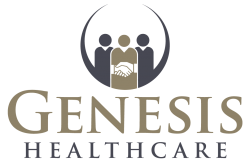Top 5 Questions To Ask a Healthcare Recruiter and Why

Healthcare is a fast-growing industry. From rising numbers of healthcare centers, to broadening specializations and an aging population, healthcare organizations have a constant need to hire qualified workers. With demand for employees outstripping the supply, more organizations are turning to medical recruiters for help finding top talent, and that trend is expected to continue into the next decade. If you’re a medical professional actively seeking or open to a new job, there’s a good chance you’ll be working alongside healthcare recruiters or staffing firms to land your next position. These specialized HR professionals can be great advocates during your job search process, but you’ll want to make sure the staffing firm and recruiter are a good fit for you. If a healthcare recruiter approaches you with a potential job, here are five top questions to ask before committing to work with them:
1. How did you find me?
Maybe you were in their database from a previous job application process, or maybe they pulled your name from LinkedIn. These are low-effort ways for a recruiter to reach out to a large pool of candidates.
On the other hand, they may have learned about you specifically, been impressed with your expertise and fit for the position, and sought you out directly.
Perhaps a coworker from your current role, or a previous one, recommended you.
The answer may let you know how high a priority you are as a candidate, what made you stand out, and how far the organization is in the search process.
2. What experience do you (and your firm) have in this field?
3. What recruiting relationships do you have with your client? (And how will you be paid?)
Recruiting companies typically work in one of two ways: on retainer or on contingency.
Retainer
Retained headhunters generally work closely with the organization and get to know its needs well. They understand the organization’s business and industry and know their requirements, culture, history, and personalities. They will typically interview their short list of candidates in person.
These recruiters can be understood as an extension of the company itself. Because their projects are more complex, they may be paid from 25 to 33% of the new hire’s basic salary plus benefits and travel, and they are typically paid in three stages.
Contingency
Recruiters that work on contingency, on the other hand, are working to fill a particular vacancy. They are paid a percentage of the first-year salary (generally 20-25%), and they receive payment only when the client makes a hire (and the new hire makes it through the trial period successfully).
Their motivation is to fill the position quickly, often using a database of possible candidates. They earn more when they negotiate a higher salary for you (as do retained recruiters), and may act more as a matchmaker than an advocate for the employer.
Exclusivity
You should also ask whether the recruiter is exclusively handling the current job listing, or if you will be competing with candidates who applied through other channels.
The ideal scenario is to work with a recruitment firm that has “sole rights” to the employer’s job offer. That way, you know the only competition lies internally, through the facility’s HR team or through the same recruitment firm you are working with.
If the recruiter has sole rights, they will have a good sense of where you stand with regards to the opportunity, and they’ll be well-informed about the pace of communications, interview stages, feedback, and the impending offer.
In contrast, if the employer is working with multiple recruitment firms, it may mean a higher number of competing applicants, and less direct information about the interview process.
4. What can you tell me about the organization, and about this job in particular?
As obvious as it may seem, picking apart the job description with the recruiter is a necessary first step in deciding whether the position is right for you. If a recruiter approaches you with a vague job description or isn’t upfront about the qualifications the employer is looking for, it could be a scam or an unusually undesirable position. Either way, it’s not worth your time.
Challenge the recruiter to give you specifics about the job’s title, qualifications, and everyday duties. Ask if the employer seeks certain requirements, such as skills or prior experience. Highlight where your skills align and call to question places where your qualifications seem off.
Finally, ask the recruiter how long the job has been open and whether it’s a newly created role or an existing one. Try to find out why the position is open to see if there are red flags that would tip you off to a problem with the employer or with the position itself. It might be a sensitive topic, so do approach it with politeness—but do not let the recruiter mislead you or distract you from getting the answers you need.
5. What can I expect from you in this process?
Of all the questions you ask your healthcare recruiter, don’t forget to find out what you can expect from the hiring process! This is YOUR job search, and it’s your prerogative to exercise agency when it comes to expectations and timelines.
Ask the recruiter when they’ll be in touch next, what their timeline looks like, how the interview process will progress, and what they’ll need from you. Asking for this information up front is your right as a job seeker. Plus, it will show more serious interest and foresight, which could gain you points with your recruiter and even the employer.
Will you interview with the recruiter before you meet the client? How many candidates will the recruiter bring to the employer? Who will make the initial and final decisions? Are you part of the first round of selection for this position, or have they gone through this before without a successful candidate?
Finally, make sure you know how to follow up with the recruiter. Get their name, phone number, and email address, and ask them to let you know before they submit your information to any additional organizations.
As the application process progresses, you can also ask for guidance such as the expected compensation range for the position and how to succeed in the interview.
Points to note
Healthcare recruiting is a competitive terrain, and as a medical professional you will likely be approached by multiple staffing firms and recruiters throughout your career. When you are, the prospect of a new job can be both exciting and stressful. Make sure you take the time to ask the right questions so you can save your time and energy for the best opportunities.
Genesis Healthcare provides job-seeking healthcare professionals with personalized, tailored medical staffing solutions. We offer a tried-and-true matching process to pair medical providers with the best positions possible. With a specialization in Women’s Healthcare, Genesis has been trusted as a healthcare staffing and recruiting expert by countless physicians, advanced practitioners and medical employers. For more information or to see how we can help your job search, check out our website or give us a call at 818-885-6186.
